
Kvívík: A Timeless Village Amidst Faroe Islands' Serenity
Nestled on the western coast of Streymoy, Kvívík is one of the oldest villages in the Faroe Islands. This picturesque village, with its charming turf-roofed houses and narrow winding streets, offers a glimpse into the ancient Norse way of life. The village’s serene setting, alongside a beautiful fjord, makes it a perfect destination for those seeking tranquility and a connection with nature. Kvívík is not just about its scenic beauty; it is also rich in history. Archaeological excavations have unveiled remnants of Viking longhouses, providing a fascinating insight into the lives of the island's earliest settlers. The village’s church, dating back to 1903, stands as a testament to the island's enduring faith and culture. Visitors to Kvívík can enjoy leisurely walks around the village, exploring its historic sites and soaking in the breathtaking landscape. The surrounding hills and coastline offer numerous hiking opportunities, with trails that present stunning views of the North Atlantic Ocean. Whether you're a history buff, nature lover, or simply in search of peace, Kvívík promises a memorable experience.
Local tips in Kvívík
- Visit the Viking longhouse ruins to get a sense of the village's ancient history.
- Take a walk to the local church for a glimpse of traditional Faroese architecture.
- Bring sturdy hiking boots for exploring the surrounding hills and coastal trails.
- Check the weather forecast before planning your trip, as the weather can be unpredictable.
- Try the local Faroese cuisine at a nearby restaurant to experience the island's culinary delights.
Kvívík: A Timeless Village Amidst Faroe Islands' Serenity
Nestled on the western coast of Streymoy, Kvívík is one of the oldest villages in the Faroe Islands. This picturesque village, with its charming turf-roofed houses and narrow winding streets, offers a glimpse into the ancient Norse way of life. The village’s serene setting, alongside a beautiful fjord, makes it a perfect destination for those seeking tranquility and a connection with nature. Kvívík is not just about its scenic beauty; it is also rich in history. Archaeological excavations have unveiled remnants of Viking longhouses, providing a fascinating insight into the lives of the island's earliest settlers. The village’s church, dating back to 1903, stands as a testament to the island's enduring faith and culture. Visitors to Kvívík can enjoy leisurely walks around the village, exploring its historic sites and soaking in the breathtaking landscape. The surrounding hills and coastline offer numerous hiking opportunities, with trails that present stunning views of the North Atlantic Ocean. Whether you're a history buff, nature lover, or simply in search of peace, Kvívík promises a memorable experience.
When is the best time to go to Kvívík?
Iconic landmarks you can’t miss
Kirkjubømúrurin
Explore the historical charm of Kirkjubøur, a captivating village rich in culture and ancient architecture in the breathtaking Faroe Islands.
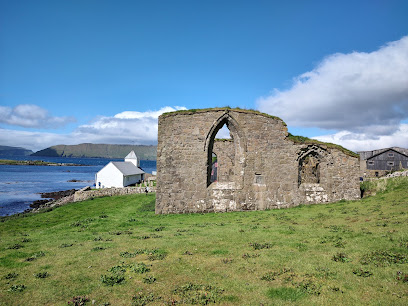
Múlafossur Waterfall
Experience the breathtaking beauty of Múlafossur Waterfall, a stunning natural attraction in the Faroe Islands surrounded by lush landscapes and dramatic cliffs.
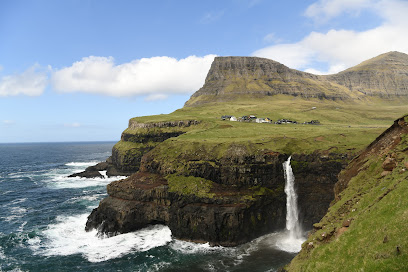
Gjógv Natural Harbour
Experience the breathtaking beauty of Gjógv Natural Harbour in the Faroe Islands, where stunning cliffs meet tranquil waters in a serene village setting.
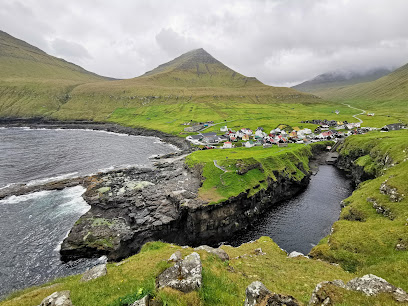
The Nordic House
Discover the essence of Nordic culture at The Nordic House, a cultural center in Tórshavn showcasing art, heritage, and community events.
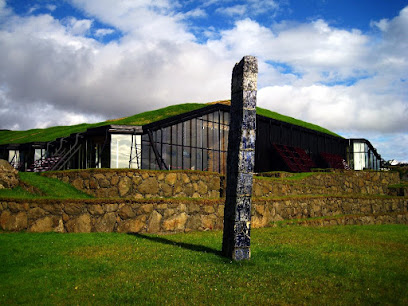
Fossá
Discover the breathtaking beauty of Fossá, one of Faroe Islands' tallest waterfalls, surrounded by stunning landscapes and serene hiking trails.
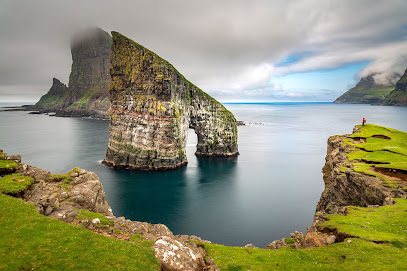
Skansin
Experience the history and breathtaking views at Skansin Fortress, a historic landmark in Tórshavn, showcasing the beauty of the Faroe Islands.
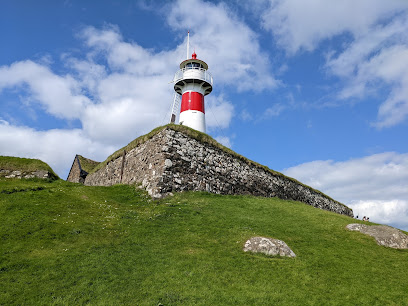
Trælanípa
Experience the breathtaking beauty of Trælanípa, where majestic cliffs meet the serene waters of the Faroe Islands, perfect for nature lovers and adventurers.
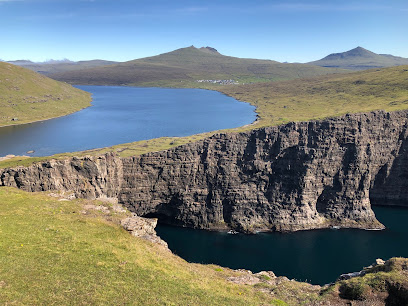
The Seal Woman (Kópakonan)
Discover the captivating tale of The Seal Woman at this iconic sculpture in Mikladalur, a must-visit for cultural enthusiasts and nature lovers in the Faroe Islands.
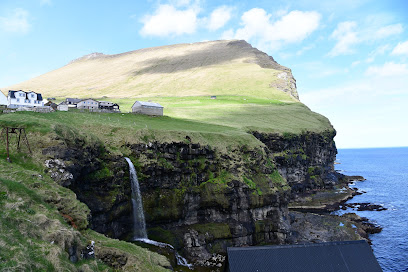
The National Gallery of The Faroe Islands
Explore the National Gallery of The Faroe Islands, a cultural haven showcasing local and international art in the heart of Tórshavn.
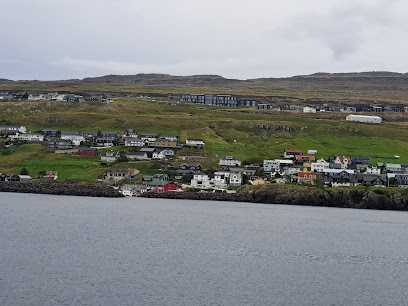
Tjóðsavnið (Faroe Islands National Museum)
Explore the rich heritage and natural history of the Faroe Islands at Tjóðsavnið, the National Museum that showcases the islands' unique cultural identity.
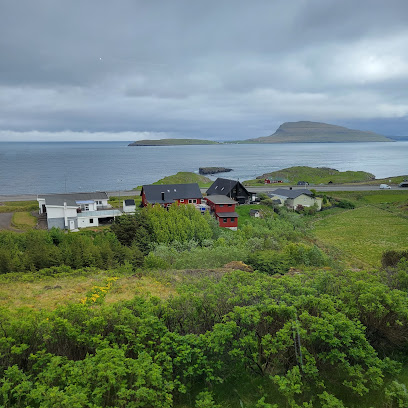
Kallur Lighthouse
Discover the breathtaking views and serene landscapes at Kallur Lighthouse on Kalsoy, a must-visit destination in the Faroe Islands.
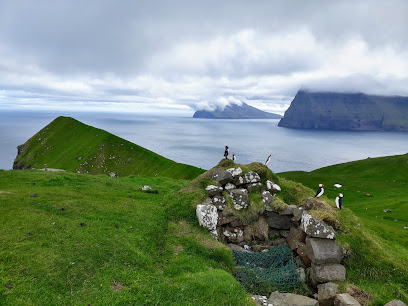
Dúvugarðar Museum & Café
Discover the rich heritage of the Faroe Islands at Dúvugarðár Museum & Café, where history meets local flavors in a picturesque setting.
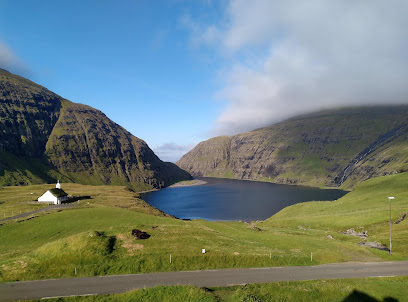
Bøsdalafossur Waterfall
Discover the breathtaking beauty of Bøsdalafossur Waterfall in the Faroe Islands, where nature's wonders come alive amidst stunning landscapes.
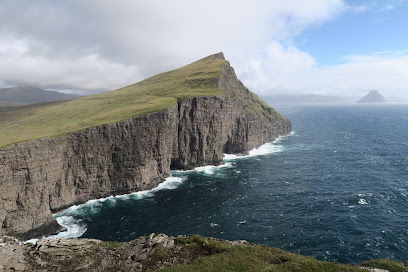
Slave Cliff (Lake Above the Ocean)
Explore Slave Cliff in the Faroe Islands – a breathtaking hiking area with stunning ocean views and a must-visit for nature lovers.
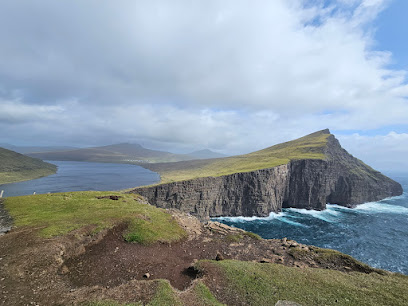
Klakkur
Explore Klakkur: A Majestic Mountain Offering Breathtaking Views and Unforgettable Hiking Experiences in the Faroe Islands.
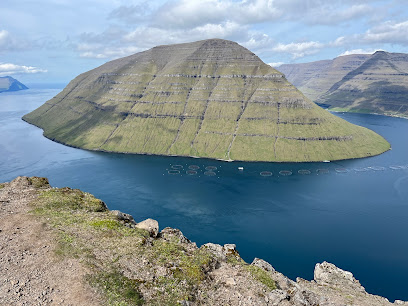
Unmissable attractions to see
Múlafossur Waterfall
Experience the iconic Múlafossur Waterfall in the Faroe Islands, where cascading waters meet dramatic landscapes and Faroese charm.
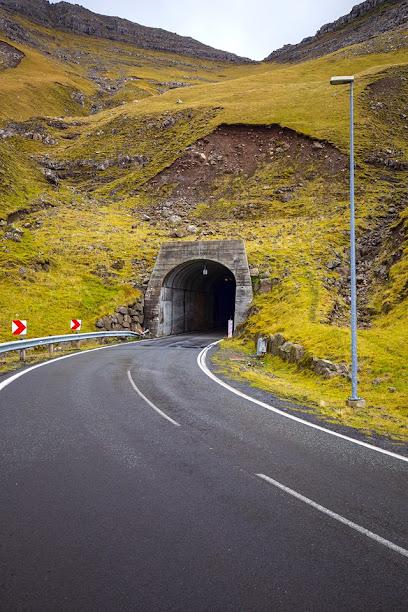
Gjógv Natural Harbour
Discover Gjógv Natural Harbour: a picturesque Faroese village with dramatic cliffs, a historic harbor, and stunning North Atlantic views.
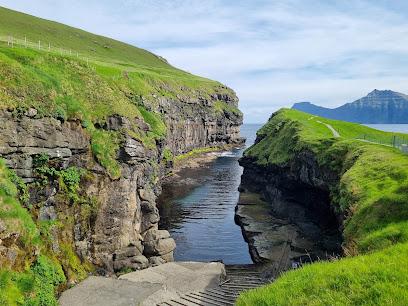
View on Mullafossur and Gasadalur village
Experience the iconic beauty of Mullafossur Waterfall and the charming village of Gásadalur in the Faroe Islands.
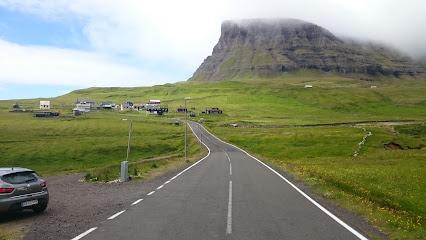
The Seal Woman (Kópakonan)
A bronze statue in Mikladalur, Faroe Islands, commemorates the haunting legend of the Seal Woman, a poignant tale deeply rooted in Faroese folklore.
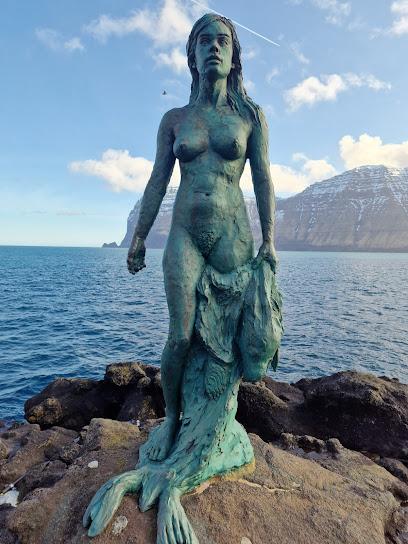
Kallur Lighthouse
Hike to Kallur Lighthouse on Kalsoy Island for breathtaking views and a touch of James Bond magic in the remote Faroe Islands.
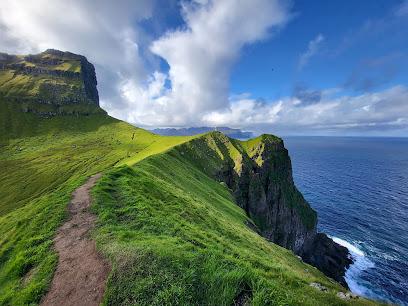
Tjørnuvik Beach
Experience the dramatic beauty of Tjørnuvík Beach in the Faroe Islands, with black sands, Viking history, and stunning views of Risin and Kellingin.
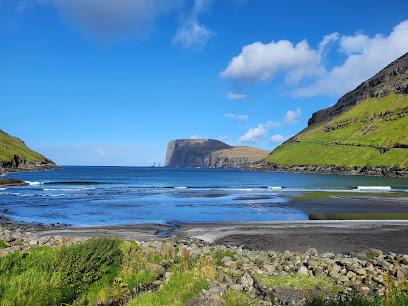
Svartafoss Waterfall
Discover Svartafoss Waterfall near Tórshavn: a serene escape showcasing the unique basalt formations of the Faroe Islands.
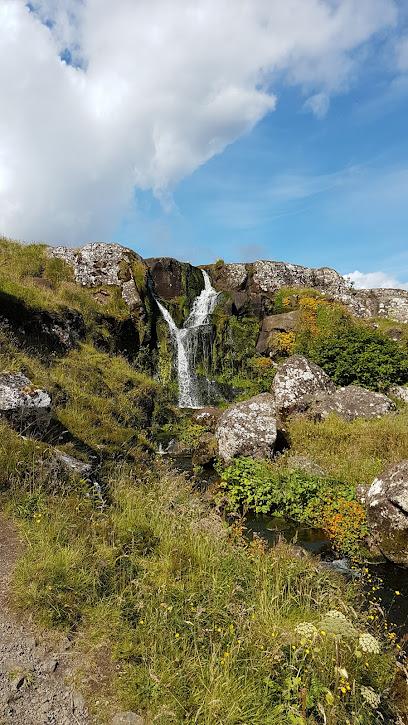
Risin og Kellingin viewpoint
Experience the stunning beauty of Risin og Kellingin viewpoint in the Faroe Islands, where folklore meets breathtaking coastal landscapes.
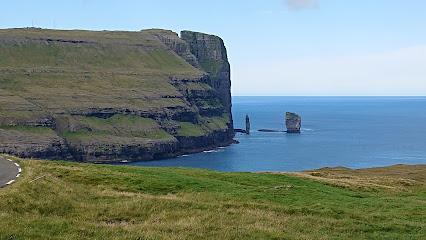
Skarðsáfossur
Discover Skarðsáfossur waterfall on the Faroe Islands: a hidden gem offering breathtaking views and a tranquil escape into nature's beauty.
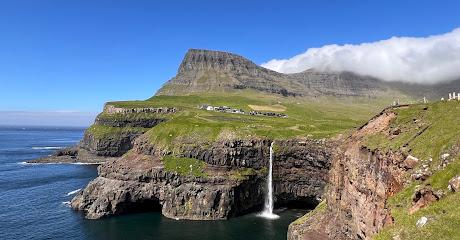
Djúpumýra Stadium
Experience the passion of Faroese football at Djúpumýra Stadium, where stunning landscapes meet thrilling sports action in Klaksvík.
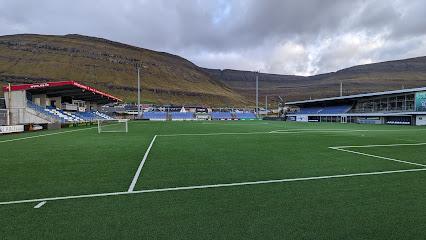
Eysturoy Tunnel
Experience the world's first undersea roundabout with stunning art and efficient travel in the heart of the Faroe Islands.
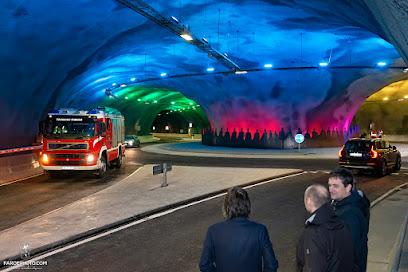
Sunset Viewpoint
Experience breathtaking sunsets and panoramic views at Gásadalur's Sunset Viewpoint, a serene escape into the unspoiled beauty of the Faroe Islands.
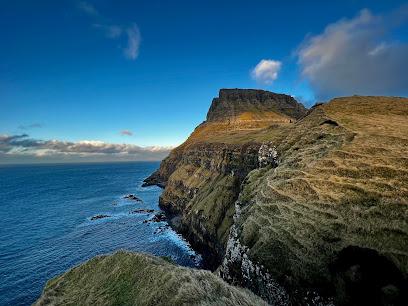
Saksun, vandfald og historie
Discover Saksun, a remote Faroese village with a dramatic lagoon, historic turf-roofed houses, and stunning natural beauty on Streymoy Island.
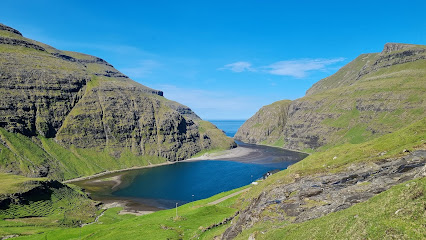
Landsbókasavnið (National Library of the Faroe Islands)
Explore Faroese history and culture at the National Library in Tórshavn, a treasure trove of literature, manuscripts, and historical documents.
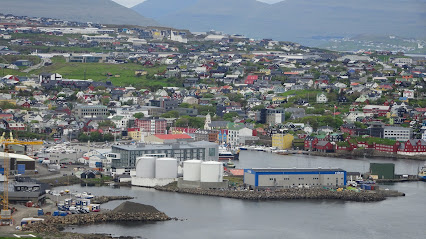
Vaglið
Experience the vibrant heart of Tórshavn at Vaglið, a historical square surrounded by iconic buildings and Faroese culture.
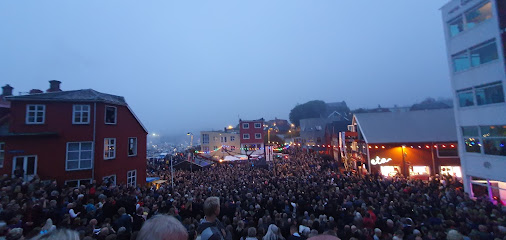
Essential places to dine
Fríða Kaffihús
Discover the heartwarming flavors of Klaksvík at Fríða Kaffihús – where delicious food meets rich Faroese culture.
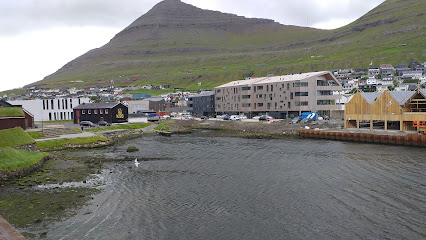
Katrina Christiansen
Experience authentic Scandinavian flavors at Katrina Christiansen in Tórshavn – where tradition meets modern culinary artistry.
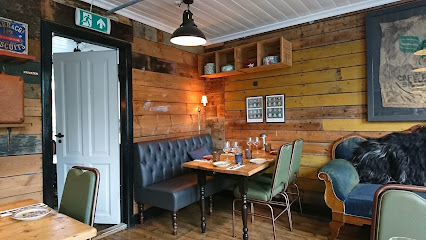
Angus Steakhouse
Discover exquisite flavors at Angus Steakhouse in Tórshavn—where quality meets Faroese culinary traditions.
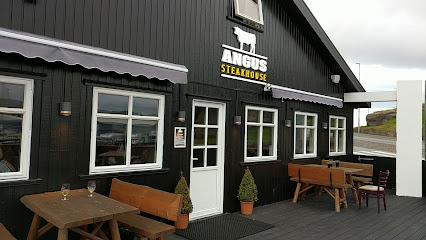
Áarstova
Experience authentic Faroese cuisine at Áarstova - where local flavors meet tradition in Tórshavn.
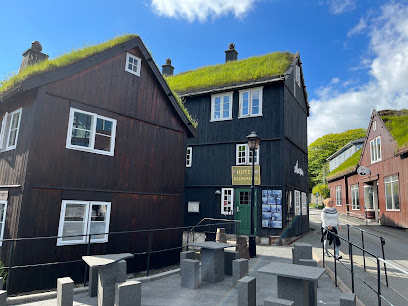
Barbara Fish House
Experience exquisite seafood dining in Tórshavn at Barbara Fish House, where fresh ingredients meet Faroese culinary traditions.
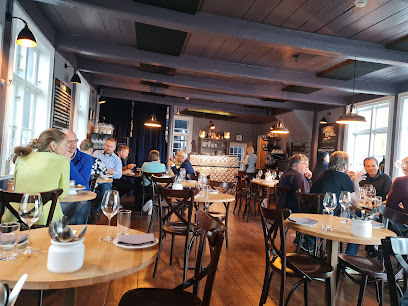
Toscana
Discover Tuscany-inspired flavors at Toscana in Tórshavn – where Italian cuisine meets local Faroese delights.
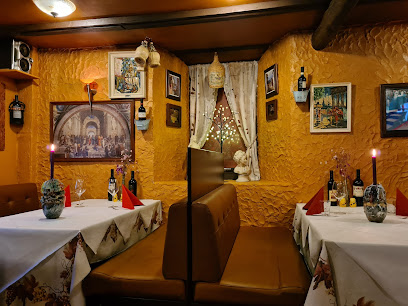
Rose's Restaurant & Catering
Experience authentic Faroese cuisine at Rose's Restaurant & Catering in Ljósá – where local flavors meet warm hospitality.
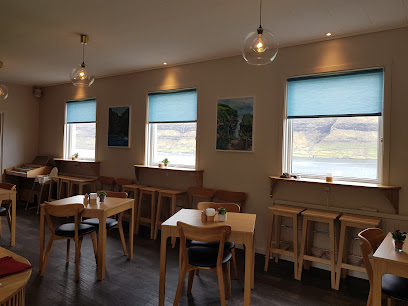
Amarant
Discover Amarant: A cozy family-friendly bakery and café in Klaksvík serving delicious pastries and wholesome meals amidst stunning Faroe Islands scenery.
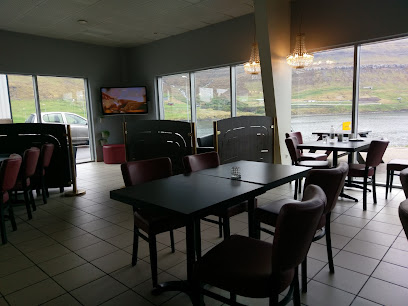
Café Zorva
Experience delightful Faroese cuisine at Café Zorva - a brasserie nestled in scenic Sørvágur offering stunning views and warm hospitality.
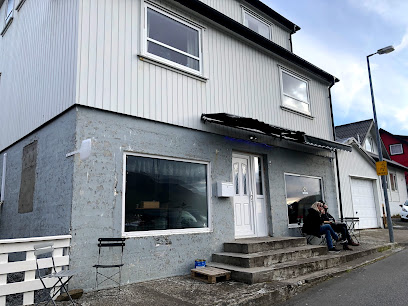
Fisk og Kips
Experience authentic Faroese cuisine at Fisk og Kips - where fresh fish meets unique flavors in Tórshavn.
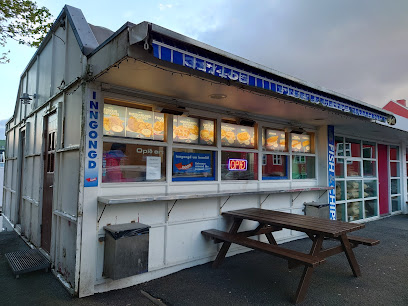
Kafe Umami
Discover Kafe Umami in Tórshavn - where fresh local ingredients meet cozy dining for an unforgettable culinary journey.
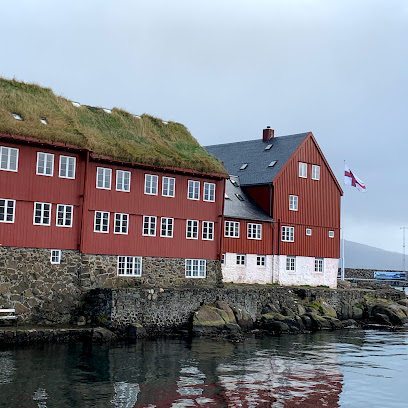
Muntra
Experience authentic Faroese cuisine at Muntra in Fuglafjørður - where local flavors meet stunning views.
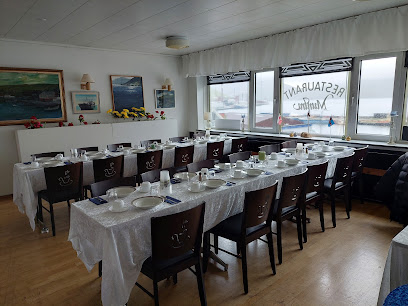
Seven
Experience authentic Chinese flavors at Seven Restaurant in Tórshavn - where every dish tells a story.
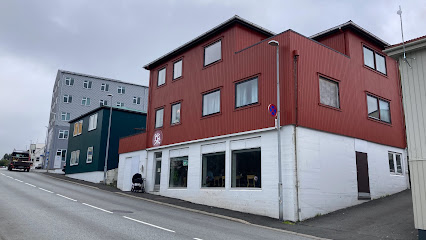
hvonn
Discover the flavors of the Faroe Islands at Hvonn – where local ingredients meet modern culinary artistry.
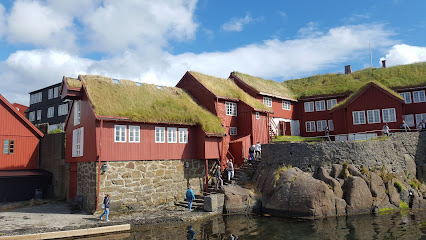
Smiðjan
Experience authentic Faroese cuisine at Smiðjan in Miðvágur - where local flavors meet breathtaking views.
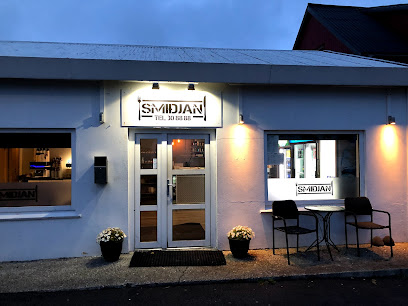
Markets, malls and hidden boutiques
H. N. Jacobsens Bókahandil
Explore H. N. Jacobsens Bókahandil, the ultimate gift shop in Tórshavn for books, souvenirs, and unique Faroese treasures.
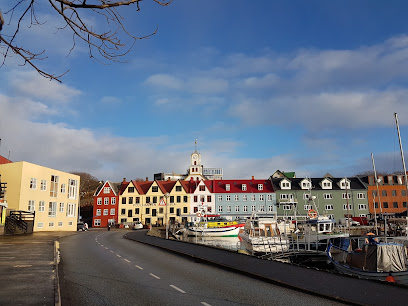
Bónus Norðskála
Explore the flavors of the Faroe Islands at Bónus Norðskála, your go-to grocery store for local produce and unique delicacies.
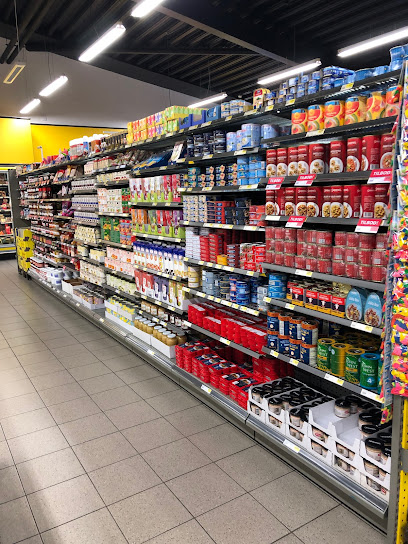
FK Super Market
Discover local flavors and everyday essentials at FK Super Market in Miðvágur, your go-to grocery store in the heart of the Faroe Islands.
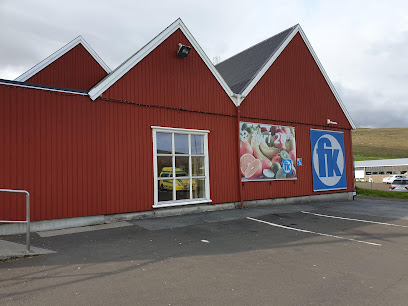
Bónus
Discover the essence of Faroese shopping at Bónus, the supermarket that offers local products and essentials for every traveler in the Faroe Islands.
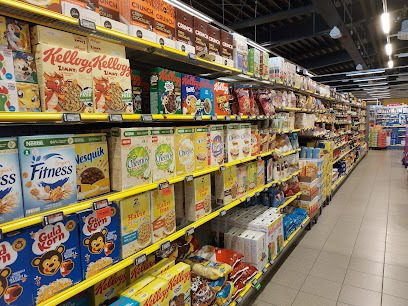
Á handil
Discover local flavors and essentials at Á handil, the top supermarket in Vestmanna, Faroe Islands, perfect for every traveler’s needs.
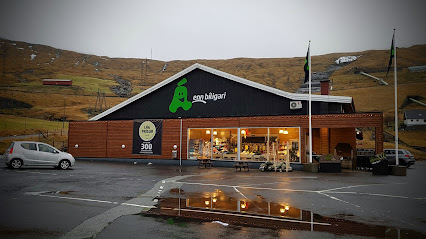
Á Handil
Explore the finest grocery store in Tórshavn, Á Handil, offering local and international delicacies for every taste.
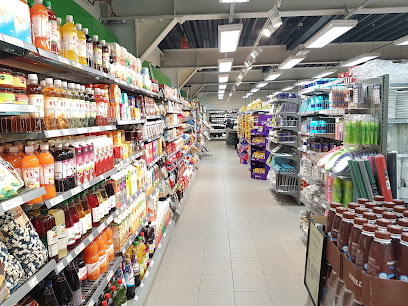
Á við Norðskála
Explore the local flavors at Á við Norðskála, a charming grocery store in Oyrarbakki, Faroe Islands, perfect for tourists and locals alike.
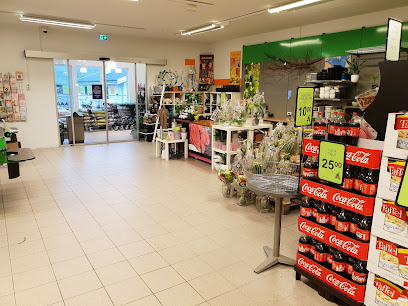
Rúsdrekkasøla Landsins - Miðvágur
Discover the unique flavors of the Faroe Islands at Rúsdrekkasøla Landsins, the premier state liquor store in Miðvágur, featuring local beers and wines.

A shop
Explore Klaksvík's vibrant supermarket, offering local and international products for a taste of the Faroe Islands.
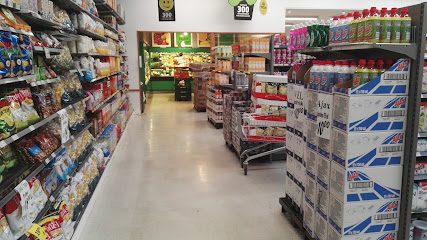
Vøruhúsið
Discover quality furniture, flooring, and hardware at Vøruhúsið, the premier home improvement store in the Faroe Islands.
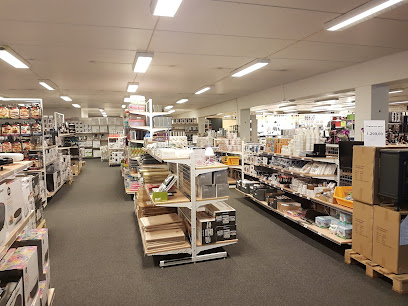
Børge
Experience the flavors of the Faroe Islands at Børge, where local produce meets artisanal craftsmanship in a charming grocery store.
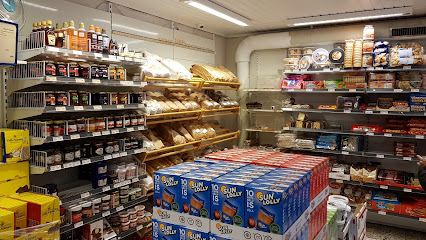
Á Sandoyggin
Discover the flavors of the Faroe Islands at Á Sandoyggin, a charming grocery store in Skopun offering local produce and essentials.
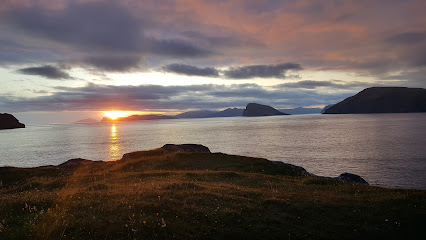
Rúsdrekkasøla Landsins - Norðskáli
Explore Rúsdrekkasøla Landsins for an exquisite selection of local beers, wines, and spirits in the stunning Faroe Islands.
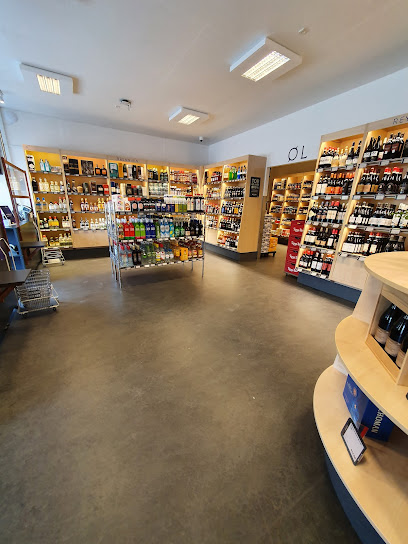
Norðoya Heimavirki
Explore Norðoya Heimavirki for exquisite handmade knitwear and local Faroese craftsmanship in the heart of Klaksvík.
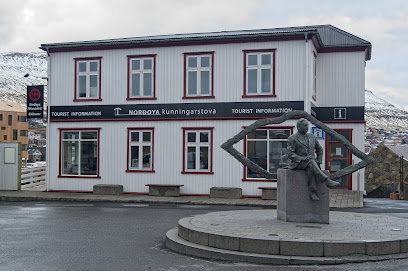
Ullvøruhúsið
Explore Ullvøruhúsið for authentic Faroese wool clothing and a unique shopping experience in Tórshavn.
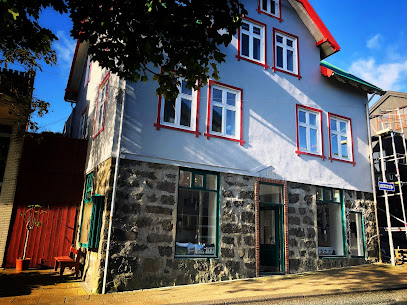
Essential bars & hidden hideouts
Irish Pub Torshavn
Discover the authentic flavors and vibrant atmosphere of Irish Pub Torshavn, where Irish culture meets Faroese charm in Tórshavn.
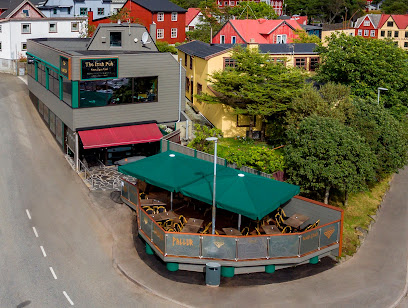
THE TARV Grillhouse
Experience the essence of Faroese cuisine at THE TARV Grillhouse, where local ingredients meet culinary artistry in Tórshavn.
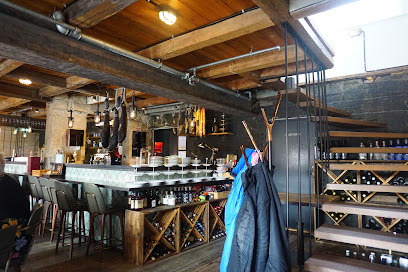
Sirkus Bar
Experience the vibrant nightlife at Sirkus Bar in Tórshavn, where local charm meets spirited ambiance for an unforgettable evening.
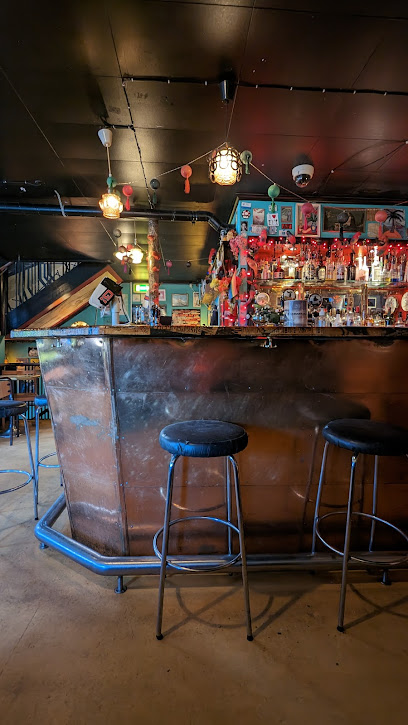
Mikkeller Tórshavn
Discover the vibrant Mikkeller Tórshavn, a top bar in the Faroe Islands, offering an exceptional selection of craft beers in a lively atmosphere.
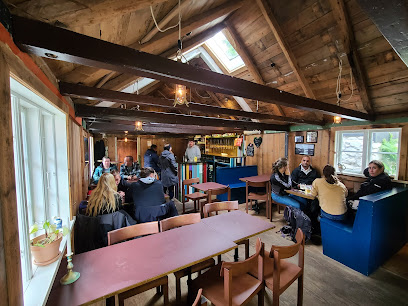
Café Zorva
Discover the flavors of the Faroe Islands at Café Zorva, a charming brasserie in Sørvágur offering local delicacies and a cozy ambiance.
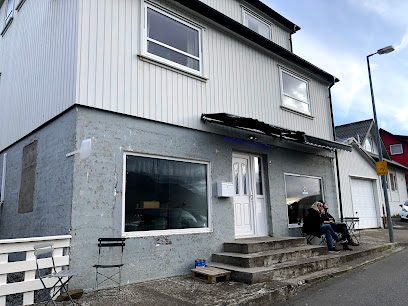
Essabarr
Discover the cozy charm of Essabarr, a must-visit cafe in Tórshavn offering local flavors and a welcoming atmosphere.
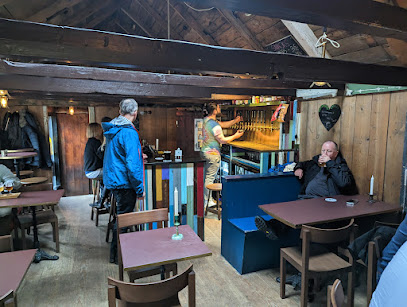
OY Brewing
Discover the essence of Faroese craft beer at OY Brewing, a lively brewpub in Tórshavn serving unique brews and tasty bar food.
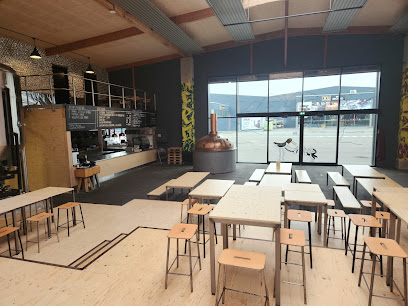
Resturant Cafe Pollastova
Experience authentic Faroese cuisine at Restaurant Cafe Pollastova in Sørvágur, where local flavors meet stunning landscapes.
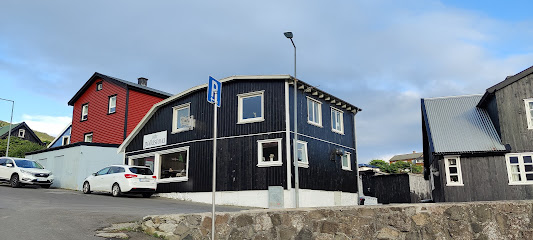
Skeiva pakkhús
Discover the authentic taste of the Faroe Islands at Skeiva Pakkhús, where tradition meets culinary excellence in a cozy setting.
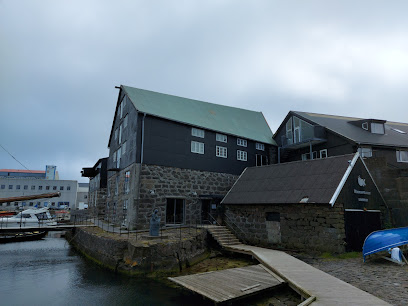
Roykstovan
Experience the warmth of Faroese hospitality at Roykstovan, a charming bar in Klaksvík offering local drinks and a vibrant social scene.
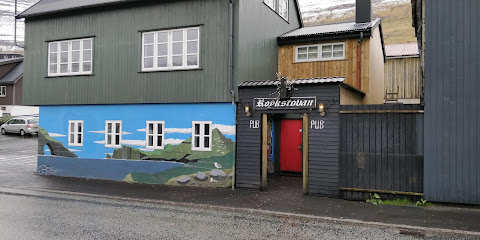
HAMSA
Experience the best of Faroese cuisine at HAMSA, a charming restaurant blending café vibes with brasserie elegance in Hoyvík.
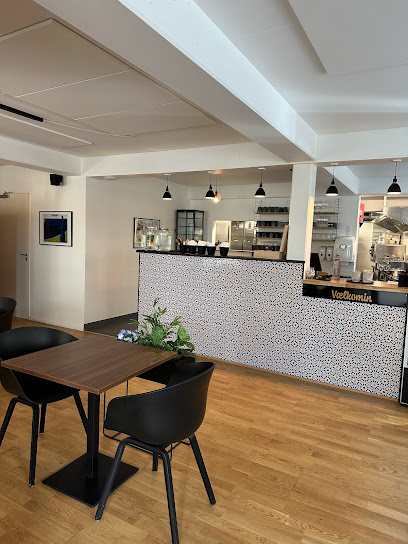
Bovling í Leirvík
Experience the excitement of bowling and delightful dining at Bovling í Leirvík, a must-visit for tourists in the Faroe Islands.
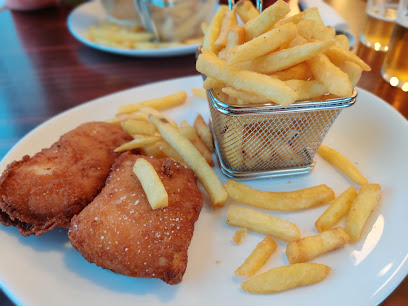
Glitnir
Discover Glitnir, a vibrant bar in Tórshavn, offering delightful drinks and a lively atmosphere for an unforgettable night out.
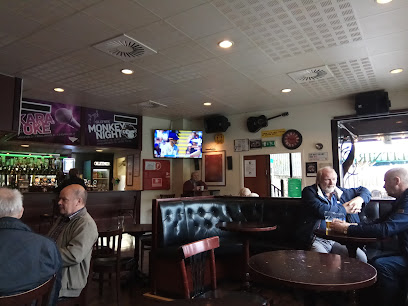
Niđristova
Discover the enchanting flavors of the Faroe Islands at Niđristova in Hvalvík, where culinary tradition meets stunning natural beauty.
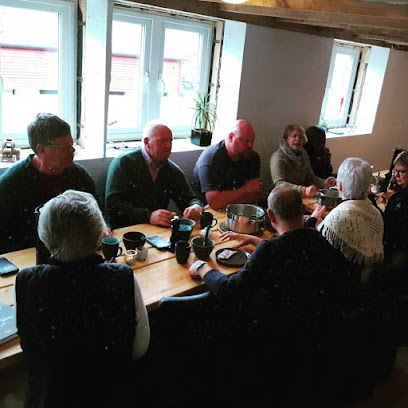
Local Phrases
-
- HelloHalló
[ha-lo] - GoodbyeFarvæl
[far-vail] - YesJa
[ya] - NoNei
[nay] - Please/You're welcomeVær vælkomin
[vair vel-ko-min] - Thank youTakk fyri
[tahk fi-ri] - Excuse me/SorryFyrirgef mær
[fur-ir-gev mair] - How are you?Hvussu gongur tú?
[kvo-su gon-gur too] - Fine. And you?Gott. Og tú?
[got ooh too] - Do you speak English?Talar tú enskt?
[tah-lar too en-skt] - I don't understandEg skilji ikki
[yeh shil-yi ih-ki]
- HelloHalló
-
- I'd like to see the menu, pleaseEg vil síggja menuin, vænta
[yeh vil see-ya me-nuin, vyn-ta] - I don't eat meatEg eta ikki kjøt
[yeh eta ih-ki shyut] - Cheers!Skál!
[skowl] - I would like to pay, pleaseEg vil gjalda, vænta
[yeh vil yal-da, vyn-ta]
- I'd like to see the menu, pleaseEg vil síggja menuin, vænta
-
- Help!Hjálp!
[hyawl-p] - Go away!Farðu burtur!
[far-thu bur-tur] - Call the Police!Ringið til løgregluna!
[rin-yith til lur-eg-lu-na] - Call a doctor!Ringið til ein læknari!
[rin-yith til iyn laik-na-ree] - I'm lostEg eri týndur
[yeh air-ee teun-dur] - I'm illEg eri sjúkur
[yeh air-ee shoo-kuur]
- Help!Hjálp!
-
- I'd like to buy...Eg vil keypa...
[yeh vil key-pa] - I'm just lookingEg eri bara at gloyma
[yeh air-ee ba-ra at glow-ma] - How much is it?Hvussu nógvan kostar tað?
[kvo-su no-gvan kohs-tar tah] - That's too expensiveTað er ov dyrt
[tah air ov deert] - Can you lower the price?Kanstu lætta prísin?
[kan-stu lea-ta pree-sin]
- I'd like to buy...Eg vil keypa...
-
- What time is it?Hvussu nógvan er tað?
[kvo-su no-gvan air tah] - It's one o'clockTað er eitt
[tah air ayt] - Half past (10)Hálv tíggju
[howl-tea-gyu] - MorningMorgun
[mor-gun] - AfternoonEftirmiðdagur
[ef-tir-mith-da-gur] - EveningKvøld
[kvoold] - YesterdayÍ gjár
[ee gyowr] - TodayÍ dag
[ee dawg] - TomorrowÍ morgin
[ee mor-gun] - 1Eitt
[ayt] - 2Tvær
[tvar] - 3Tríggjar
[tree-gyar] - 4Fýra
[fee-ra] - 5Fimm
[fim] - 6Seks
[seks] - 7Sjey
[shay] - 8Átta
[owt-ta] - 9Niðan
[nee-than] - 10Tíggju
[tea-gyu]
- What time is it?Hvussu nógvan er tað?
-
- Where's a/the...?Hvar er ein...?
[kvar air iyn] - What's the address?Hvat er adresan?
[kvat air ah-dre-san] - Can you show me (on the map)?Kanstu vísa mær (á kortið)?
[kan-stu vee-sa mair (owr kor-tith)] - When's the next (bus)?Nær kemur næsta (buss)?
[nair ke-mur nai-sta boos] - A ticket (to ....)Eitt miðaslag (til ....)
[ayt mee-tha-slahg til]
- Where's a/the...?Hvar er ein...?
History of Kvívík
-
Kvívík is one of the oldest settlements in the Faroe Islands, with its origins tracing back to the Viking Age around the 9th century. Archaeological excavations have revealed the remains of Viking longhouses and other artifacts, providing a glimpse into the life of the Norse settlers who first established the village.
-
During the medieval period, Kvívík was primarily an agricultural community. The inhabitants engaged in farming, sheep herding, and fishing, which were essential for their survival. The traditional methods of farming and animal husbandry practiced in Kvívík have been passed down through generations and are still evident in the village today.
-
In the 17th and 18th centuries, Kvívík became an important trading hub in the Faroe Islands. The village's strategic location on the west coast made it a crucial point for the exchange of goods between the islands and the outside world. Fishing, in particular, was a significant part of Kvívík's economy, with dried fish being a major export.
-
One of the notable events in Kvívík's history is the Battle of Kvívík, which took place in 1808 during the Napoleonic Wars. The battle was fought between British forces and Danish-Norwegian defenders. Although the encounter was relatively minor in the grand scope of the war, it left a lasting impact on the village and is remembered as a significant historical event.
-
In the 20th and 21st centuries, Kvívík has seen modernization in terms of infrastructure and amenities. Despite these changes, the village has managed to preserve its unique cultural heritage. The local community places a strong emphasis on maintaining traditional Faroese customs, such as the annual grindadráp (pilot whale hunt) and other communal activities that reflect the island's longstanding traditions.
-
Kvívík boasts a variety of traditional Faroese buildings, characterized by their distinctive turf roofs and wooden structures. These architectural features not only serve as a testament to the village's historical past but also contribute to its picturesque landscape. The Kvívík Church, built in 1903, is a notable example of this architectural style, blending historical elements with the natural beauty of the surroundings.
Kvívík Essentials
-
Kvívík is located on the island of Streymoy in the Faroe Islands. The nearest airport is Vágar Airport, approximately 40 kilometers away. From the airport, you can take a taxi or rent a car to reach Kvívík, which typically takes around 45 minutes by road. Alternatively, you can use public transport; buses run regularly between the airport and Tórshavn, the capital, from where you can catch a connecting bus to Kvívík.
-
Kvívík is a small village, and most of its attractions are within walking distance. For longer trips, local buses are available and connect to other parts of Streymoy and the Faroe Islands. Renting a car is also a convenient option for exploring the surrounding areas at your own pace. Bicycles can be rented for a more eco-friendly and enjoyable exploration of the scenic routes.
-
The official currency in the Faroe Islands is the Faroese króna (DKK), which is equivalent to the Danish krone. Credit cards are widely accepted in most establishments, including hotels, restaurants, and shops. However, it is advisable to carry some cash, especially when visiting smaller villages or remote areas. ATMs are available in larger towns, but it is best to withdraw sufficient cash in Tórshavn before heading to Kvívík.
-
Kvívík is a very safe destination for tourists, with low crime rates. However, it is always wise to take standard precautions. Avoid leaving valuables unattended and be cautious when exploring remote areas, especially in adverse weather conditions. There are no specific high-crime areas targeting tourists in Kvívík, but staying vigilant and aware of your surroundings is always recommended.
-
In case of emergency, dial 112 for immediate assistance. The local police and medical facilities are available in Tórshavn, about 30 kilometers from Kvívík. It is recommended to have travel insurance that covers medical emergencies. For minor health issues, there are pharmacies in Tórshavn where you can purchase over-the-counter medications.
-
Fashion: Do dress in layers and wear waterproof clothing, as the weather can be unpredictable. Avoid wearing overly flashy or revealing attire. Religion: Do respect local customs and traditions. While there are no strict religious dress codes, it is always polite to dress modestly when visiting churches. Public Transport: Do be punctual and check the bus schedules in advance. Don't eat or drink on public transport. Greetings: Do greet people with a friendly 'Hallo' or 'Góðan dagin.' A handshake is also common. Eating & Drinking: Do try local dishes such as skerpikjøt (dried mutton) and ræst fiskur (fermented fish). Don't refuse hospitality, as it is considered impolite.
-
To experience Kvívík like a local, visit the ancient Viking ruins and the village museum to learn about the area's history. Engage with locals, who are often friendly and eager to share stories about their heritage. Don't miss the opportunity to hike the nearby trails, offering stunning views of the landscape and the ocean. For a unique experience, attend local events and festivals, where you can enjoy traditional Faroese music and dance.
Trending Landmark in Kvívík
-
Kirkjubømúrurin
-
Múlafossur Waterfall
-
Gjógv Natural Harbour
-
The Nordic House
-
Fossá
-
Skansin
-
Trælanípa
-
The Seal Woman (Kópakonan)
-
The National Gallery of The Faroe Islands
-
Tjóðsavnið (Faroe Islands National Museum)
-
Kallur Lighthouse
-
Dúvugarðar Museum & Café
-
Bøsdalafossur Waterfall
-
Slave Cliff (Lake Above the Ocean)
-
Klakkur
Nearby Cities to Kvívík
-
Things To Do in Vestmanna
-
Things To Do in Hvalvík
-
Things To Do in Sandavágur
-
Things To Do in Miðvágur
-
Things To Do in Sorvagur
-
Things To Do in Strendur
-
Things To Do in Runavík
-
Things To Do in Gøta
-
Things To Do in Tórshavn
-
Things To Do in Argir
-
Things To Do in Nólsoy
-
Things To Do in Klaksvik
-
Things To Do in Tvøroyri
-
Things To Do in Vágur
-
Things To Do in Seydisfjordur







